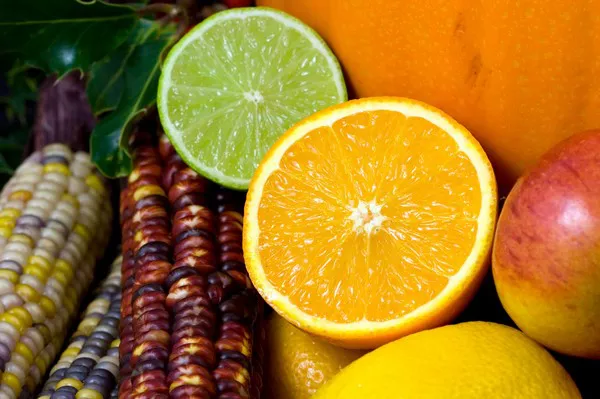The ketogenic diet, often referred to as the keto diet, has gained immense popularity in recent years due to its potential for weight loss and numerous health benefits. This high-fat, low-carbohydrate diet can lead to significant changes in your body’s nutritional needs. While the keto diet offers various advantages, it’s essential to ensure that you’re getting all the necessary vitamins and minerals to maintain overall health and well-being. In this article, we will explore the vitamins you should consider incorporating into your ketogenic lifestyle.
1. Vitamin D
Vitamin D is a fat-soluble vitamin that plays a crucial role in maintaining bone health, immune function, and overall well-being. When following a keto diet, there might be a risk of vitamin D deficiency since many natural sources of vitamin D, such as fortified dairy products and fatty fish, are limited. Spending less time outdoors due to dietary restrictions can also contribute to this deficiency. To ensure you’re getting enough vitamin D, consider incorporating supplements or consuming vitamin D-rich foods like salmon, mackerel, and eggs into your diet.
2. Vitamin B Complex
The B vitamins, including B1 (thiamine), B2 (riboflavin), B3 (niacin), B5 (pantothenic acid), B6 (pyridoxine), B7 (biotin), B9 (folate), and B12 (cobalamin), play a vital role in energy metabolism, nerve function, and overall health. Since many keto foods like grains, legumes, and fortified cereals are restricted, it’s important to ensure you’re getting an adequate intake of B vitamins. Consider taking a B-complex supplement to cover your bases and support energy production, cognitive function, and nerve health.
3. Magnesium
Magnesium is an essential mineral that plays a role in over 300 biochemical reactions in the body. It is crucial for maintaining muscle and nerve function, regulating blood sugar levels, and supporting bone health. However, the keto diet can increase the risk of magnesium deficiency, as many magnesium-rich foods, such as whole grains and legumes, are restricted. Incorporate magnesium-rich foods like spinach, avocados, and nuts into your diet, and consider taking a magnesium supplement if needed.
4. Potassium
Potassium is an electrolyte that plays a critical role in maintaining proper muscle and nerve function, blood pressure regulation, and heart health. While the keto diet typically includes potassium-rich foods like avocados and leafy greens, the diuretic effect of ketosis can lead to increased potassium excretion through urine. To prevent potassium deficiency, ensure you’re consuming enough potassium-rich foods and consider potassium supplements if recommended by your healthcare provider.
5. Calcium
Calcium is essential for maintaining strong bones and teeth, as well as supporting muscle function and nerve signaling. While dairy products are a significant source of calcium, they are often restricted on the keto diet due to their carbohydrate content. To meet your calcium needs, incorporate non-dairy sources of calcium such as leafy greens, almonds, and canned sardines with bones. Additionally, consider taking a calcium supplement if your diet falls short of meeting your daily requirements.
6. Fiber
While fiber is not a vitamin or mineral, it is crucial for digestive health and overall well-being. The keto diet is typically low in fiber because it restricts many high-fiber foods like fruits, whole grains, and legumes. Low fiber intake can lead to digestive issues like constipation. To maintain healthy digestion on a keto diet, focus on consuming low-carb, high-fiber vegetables like broccoli, cauliflower, and Brussels sprouts. Additionally, you can consider psyllium husk or other fiber supplements to support digestive regularity.
7. Omega-3 Fatty Acids
Omega-3 fatty acids, specifically EPA (eicosapentaenoic acid) and DHA (docosahexaenoic acid), are essential fats that play a crucial role in heart health, brain function, and inflammation control. While the keto diet encourages the consumption of healthy fats, it’s essential to ensure you’re getting an adequate intake of omega-3s. Fatty fish like salmon, mackerel, and sardines are excellent sources of omega-3s. If you don’t consume enough of these foods, consider taking a high-quality fish oil supplement.
8. Iron
Iron is essential for transporting oxygen throughout the body and maintaining energy levels. While red meat is a good source of heme iron, which is easily absorbed by the body, some people on the keto diet may not consume enough of it. If you’re not getting adequate iron from your diet, consider incorporating other iron-rich foods like poultry, seafood, and dark leafy greens. You can also consult with a healthcare provider about iron supplements if necessary.
Conclusion
The ketogenic diet can offer various health benefits, but it’s essential to pay attention to your nutrient intake to maintain overall health and well-being. Incorporating the right vitamins and minerals into your keto diet can help prevent deficiencies and support optimal health. Remember that individual nutrient needs may vary, and it’s always a good idea to consult with a healthcare provider or registered dietitian before starting any new dietary regimen or supplement routine. By being mindful of your vitamin and mineral intake, you can maximize the benefits of the keto diet while maintaining your long-term health.

